Dear reader,
Welcome to another month. I thought I’d help you usher in March with some fictional travel. Every book is a journey, but there are some stories so deeply rooted in location that the city, town, or village they’re set in become their own character, infusing the narrative with a rich layer.
I have enough recommendations for multiple issues (you can also check out my 2023 post on transporting short story collections here or below)
Anu Recommends #31
This is the third and last of three written-in-advance newsletter issues as the Storyteller shifts to a temporary bi-weekly schedule. The next issue on August 27 will be in real time.
Today you get these four.
A Bookshop in Algiers
“You have to be alone to get lost and see everything. There are some cities, and this is one, where any kind of company is a burden. You wander here as if among thoughts, hands in your pocket, a twinge in your heart.”
Then, you chance upon a quiet backstreet in Algiers where lives an unremarkable building with a remarkable history.
In 1936, twenty-year-old Edmond Charlot founded Les Vraies Richesses (Our True Wealth), a small bookstore and publishing house. French colonial forces destroyed his entire archive twice, but through it all, Charlot tirelessly worked to uphold the place, with its motto of “by the young, for the young”, as one of the hearts of the city, a thriving hub of Algierian culture and literature.
It was he who first discovered one Albert Camus, then twenty four years old; it was here that the Free French propaganda was printed during WWII; it was here that so many writers were nurtured and unearthed. A space given over entirely to literature, art, and friendship.
In 2017, Les Vraies Richesses has been closed for decades, living on as a government lending library, but soon to be dismantled forever. Twenty-year-old Ryad is sent to empty the stock and repaint the premises. There he meets Abdallah, the bookshop’s self-appointed, nearly illiterate, solitary, aged guardian, with a coarse Egyptian cotton sheet draped across his shoulders that he wishes to, eventually, be buried in. These interactions, along with an omniscient narrator guiding our journey through Algeria’s life and times, are interspersed with Charlot's journal entries.
A Bookshop in Algiers (translated from the French by Chris Andrews) is the third novel by young Algerian novelist Kaouther Adimi. While it didn’t live up to the heights I had unconsciously built up within me—perhaps a bit was lost in translation or maybe it didn’t really know what cohesive narrative form to take, it is a charming book and a valuable insight into a country and a period of history I didn't know much about. And has left me with many threads of reference I fully intend to follow wherever they lead.
Kings County
Kings County is as much a story and history of Brooklyn, and the indie music scene born there, as it is of the four characters whose lives we follow. The main protagonists are Audrey Benton and Theo Gorski, a couple that seems to epitomise young love against all odds and differences, though they are star-crossed. The other central characters are Sarah and Chris, Audrey's couple friends from before she met Theo.
The narrative goes back and forth between histories and pasts and these four characters. There is also a strong link to historical events to keep it rooted in reality and make the characters’ stories feel almost biopic-like as we follow them to the novel's present day (2011). To quote a line from the publisher’s blurb: “From the raucous protests of Occupy Wall Street to the hushed halls of the publishing world, from million-dollar art auctions to late-night Bushwick drug dens, Kings County captures New York City at a heightened moment of cultural reckoning.” I particularly loved the time we spend at Cape Canaveral with Audrey and her grandmother, a character I wanted even more of.
Though the mystery central to the plot (a dark secret from the past) kicks things off, so to speak, and continues to drive the narrative, it is still almost secondary (and overall weaker) to this character-centric narrative—I was very impressed by the thorough and detailed character development. The writer also has a knack for observation and the rhythms of the language, and though the narrative itself has many tangents and threads, they are immersive, for the most part. I did feel like the middle dragged a bit, while the denouement felt rushed in comparison; my only major “complaint” for want of a better word.
Kings County is an ambitious novel that succeeds more than it doesn’t, and I’d recommend it if you enjoy slow-burners heavy on character exploration.
David has also been a Storyteller 1.0 guest; link below!
The Storyteller: An Interview with David Goodwillie
Hi and welcome to Issue #11 of The Storyteller! If you aren't yet subscribed to the newsletter, you can change that here. Today's guest is David Goodwillie. David and I met at the Simon & Schuster Selects event in Boston back in early March (just a few days prior to Boston going into quarantine, ah those days) where his then-upcoming book,
Snow Hunters
There is Yohan, a North Korean war refuge, and a new life sought far from the shores of his land, in a Brazilian port town.
There is Kiyoshi, the Japanese tailor with his own secrets who takes him in and gives him work.
There is Peixe, the wise, quiet, gentle groundskeeper of the town church.
And there are Santi and Bia, two children as lost as Yohan is, who keep finding each other through the months and years and seasons, though they have little in common otherwise.
Paul Yoon, himself a North Korean war refugee, pens an evocative, empathetic debut novel about reckoning with past and trauma, second chances and delicately interweaving new lives, and moments of calm and tenderness. A novel that reads almost like a ruminative, leisurely dream of gathered bits and pieces, quite like the quote below.
“He wondered what choice there was in what was remembered, and what was forgotten [...] And be understood that he would never be able to hold all the years that had gone in their entirety. That those years would begin to loosen, break apart, slip away. That there would come a time when there was just a corner, a window, a smell, a gesture, a voice to gather and assemble.”
Snow Hunters, like many of its ilk with a somewhat detached, sparse, yet elegant narration, doesn’t allow you more than a brief connection with its characters, but ends on a surprisingly hopeful note.
Read if you like very slow, contemplative, almost poetic literary fiction.
The Island of Missing Trees
Where do you start someone's story?
In a 1974 Cyprus unaware that it is teetering on the cusp of a brutal civil war? The moment the Greek Cypriot Kostas and his Turkish Cypriot neighbour Defne fall in (forbidden) love in a divided capital that summer? When a grief-stricken Ada, born of this fraught union, starts asking questions in 2010s North London on the arrival of her Aunt Meryem whom she has never met before? Or does it commence long before, once upon a memory, when a fig sapling is planted in the centre of what will become a tavern renowned for being a safe space, the branches of the Ficus Carica spreading and growing through a special hole in the roof?
In fact, this story begins from an unlikely image, as the author herself mentions in her acknowledgements. If she had known she wouldn’t be able to return to her Turkish homeland when she departed, she would have carried a “Mediterranean tree with portable roots” with her across the seas.
It is claimed that every genus of the Ficus is a meeting point, a gathering place; that a fig tree is where one should turn when one has lost love, when one seeks it. The edible common fig of The Happy Fig tavern in Nicosia is one of this story’s involved narrators; first in Cyprus and then in England.
Migration, belonging, legacy, the things we pass on knowingly and unknowingly, the names we give things that we are afraid of are all key themes as is the ever-present danger of climate change, and why we need to pay equal heed, if not more, to the generational trauma suffered by the natural world, the memories and stories it continues to absorb through it all. We are all connected.
The Island of Missing Trees is a modern-day fable with a big heart and it should be read as such, embracing its stylistic and storytelling foibles—an old-timey narration that chooses macro over micro, evokes a heady, atmospheric sense of place and time, and favours tidy knots for complex threads and people.
Elif Shafak’s dedication encapsulates the spirit of this tender tale.
“To immigrants and exiles everywhere,
the uprooted, the re-rooted, the rootless,
And to the trees we left behind
rooted in our memories.”
Have you read these/did any catch your eye?
It’s been a very hectic time so this issue is less chatty than some of my others. I hope you still enjoyed reading about my recs—I’ll see you in two weeks for a (hopefully) longer conversation!
Until then, please feel free send in recommendations—books, movie, TV shows, authors to interview, what you’re currently reading and watching, ideas of what you’d like me to write on, rants/ramblings/excited monologues, GIFs and memes (especially them) and more. Just drop me a line and turn this into a conversation, even if just to say hi and let me know what you thought of the latest issue. Or share this with someone you think might enjoy it. I always enjoy hearing from you 😊
Take care and I’ll see you next on March 17!
Anu
You can find me on Twitter at @AnuNande (follow for all the football chatter) and on Instagram at @booksinboston.

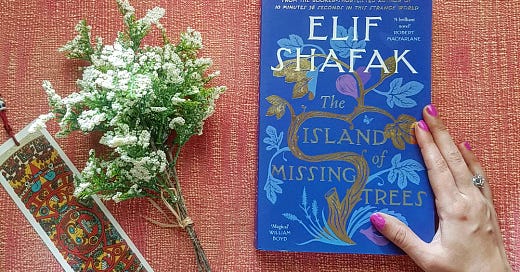


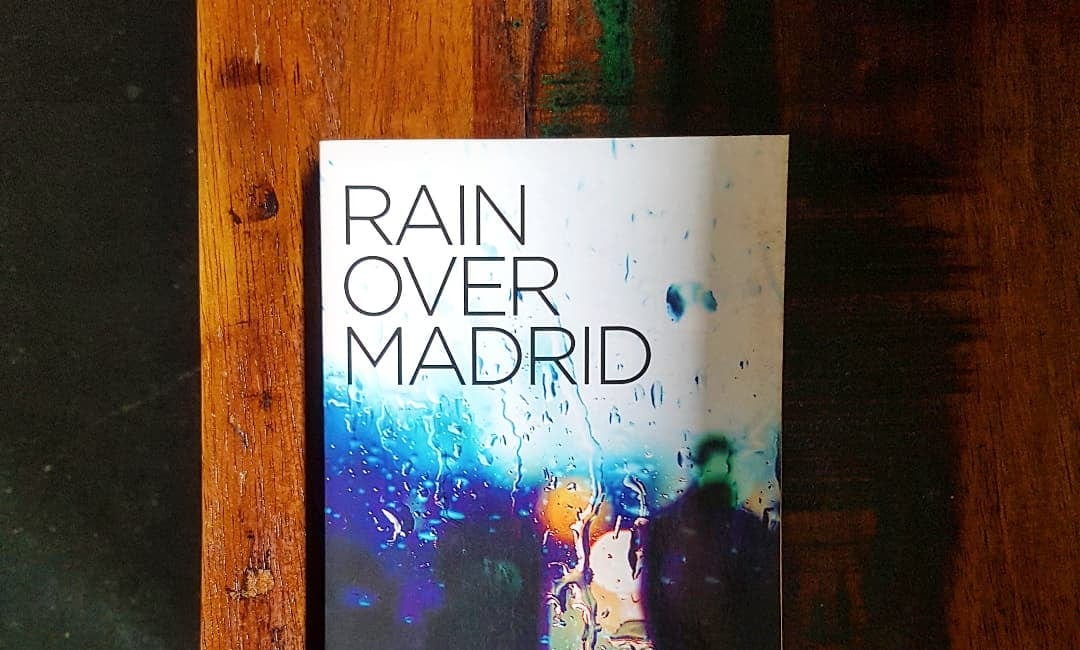
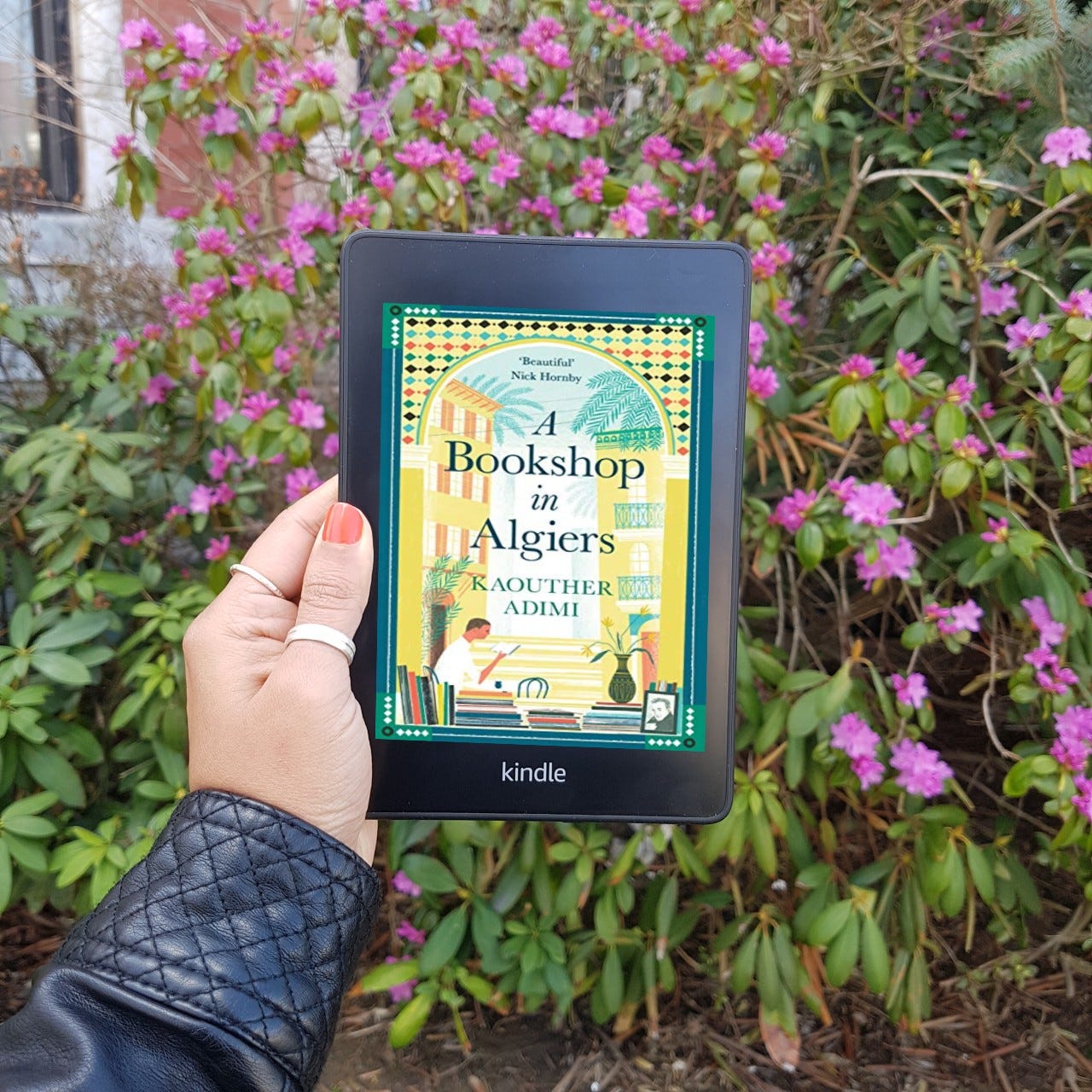
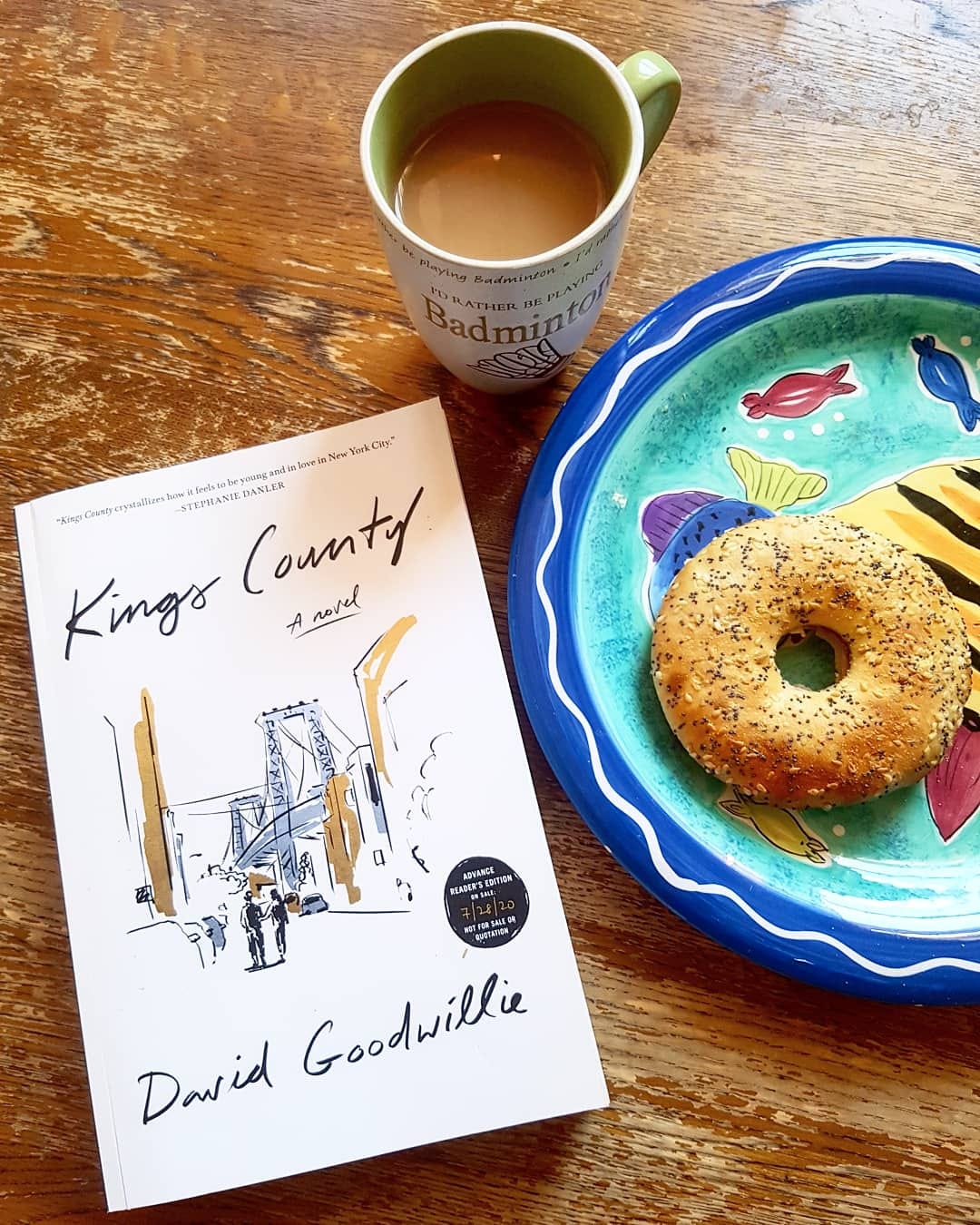
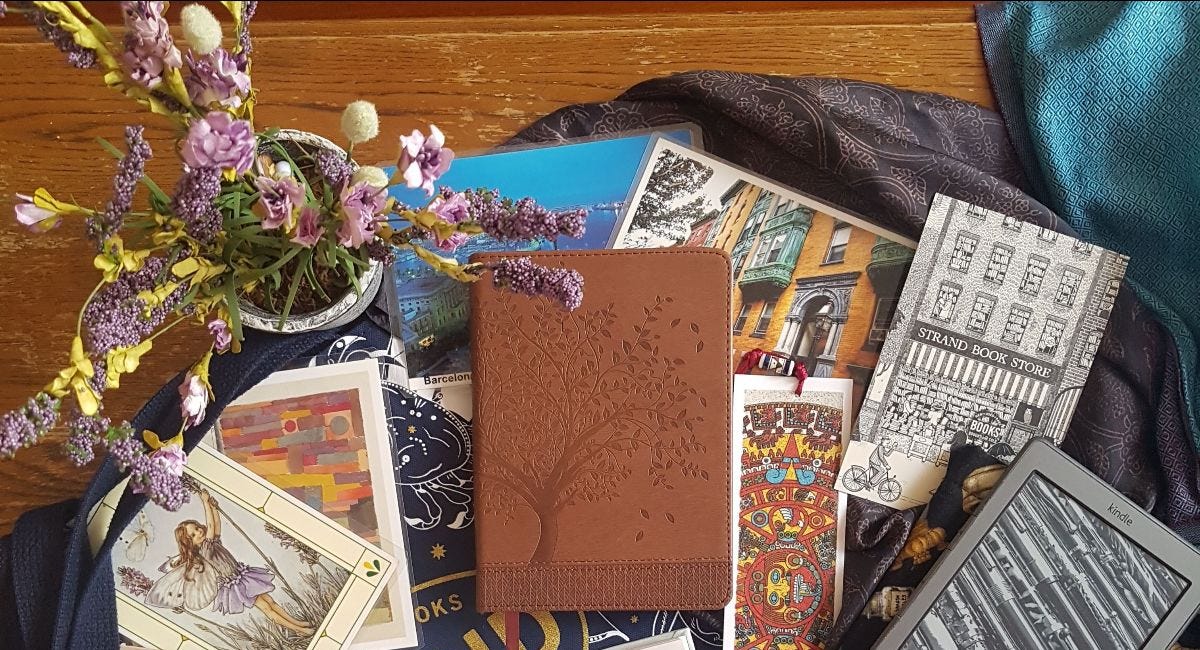
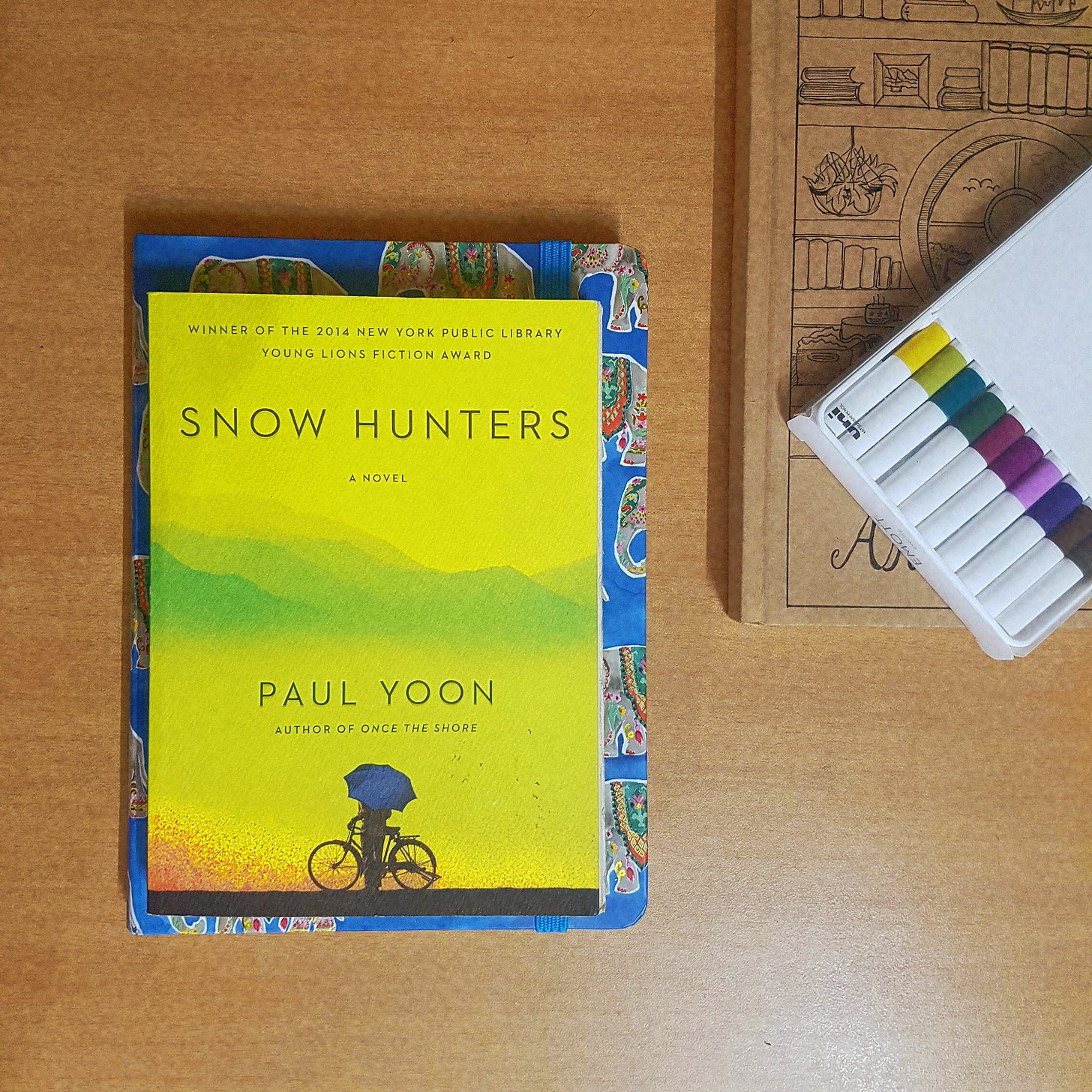

I'm currently reading Pico Iyer's Falling Off the Map. Perhaps that's why this idea of a place becoming a character in a novel felt even more resonant.
Do share some more recommendations on this theme!